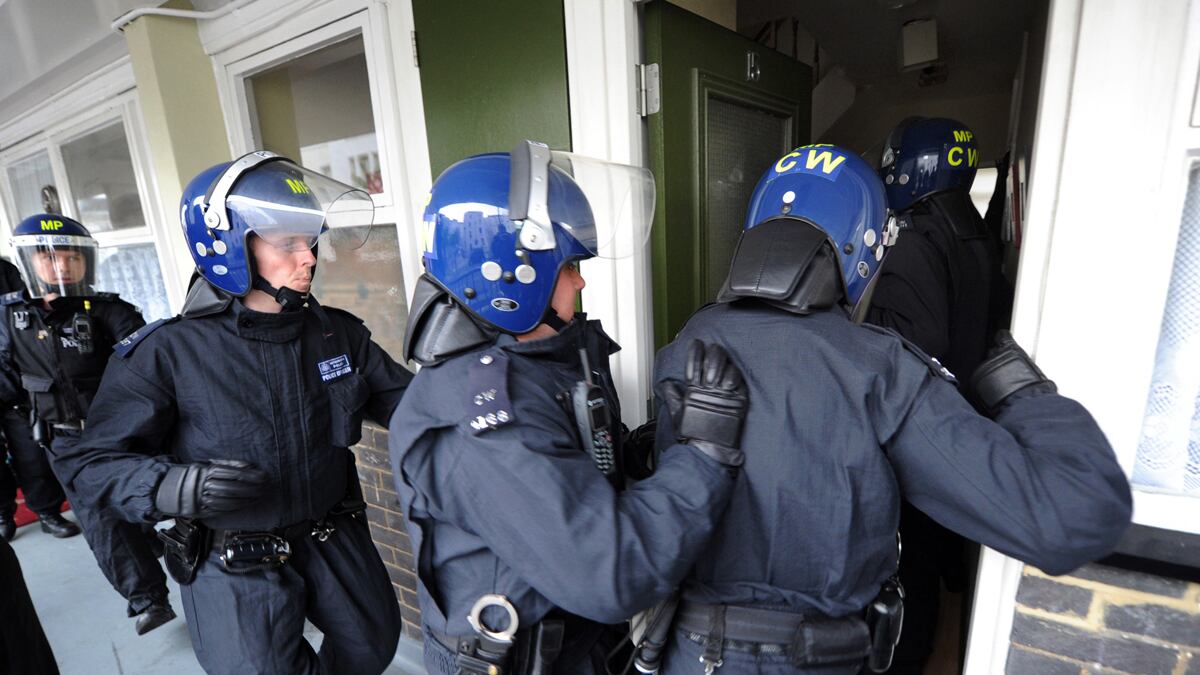Jordan Blackshaw never reached the riot he’d planned. At the height of last week’s disturbances, the 20-year-old posted a message on a social-networking site urging friends to gather at the local McDonald’s in Northwich, a quiet town in northwest England, for an evening of “lootin’.” But his call on Facebook went unanswered. Only the police, alerted to the message, appeared at the restaurant. Blackshaw was arrested and charged with inciting violent disorder.
But neither the failure of his plans nor his guilty plea brought leniency. When he appeared at Chester Crown Court Monday, Blackshaw was handed a four-year prison term. Judge Elgan Edwards said: “You sought to take advantage of crime elsewhere and transpose it to the peaceful streets of Northwich. The idea revolted many right-thinking members of society.”
A fellow failure, charged with the same offense, fared just the same. In a drunken moment, 22-year-old Perry Sutcliffe-Keenan from the nearby town of Warrington used Facebook to design a page labeled “The Warrington Riots.” When he awoke sober a few hours later, he took down the posting. There was no riot and he later apologized, claiming it was a joke. His sentence from Judge Edwards: four years of imprisonment.
A stern warning to other troublemakers and a reflection of public outrage? Or crowd-pleasing gestures that ignore the lessons of experience and rational sentencing policies? Prime Minister David Cameron seems in little doubt. On a visit to Warrington today, he said: "It's up to the courts to make decisions about sentencing, but they've decided to send a tough message, and it's very good that the courts feel able to do that."

Certainly, judges seem ready to set aside their usual practices. Figures published today by the Justice Ministry show 1,277 suspects had appeared in the dock by noon Tuesday in connection with the riots. Overwhelmingly the suspects were male, and 21 percent were under 18. In total, 65 percent had been remanded in custody. compared with a normal rate of just 10 percent for serious crimes.
And when it comes to sentencing, there’s evidence of a hardline attitude that’s troubled civil-rights groups and some lawyers. One 23-year-old Londoner was jailed for six months for burglary for stealing a case of water worth barely $6 from a looted supermarket. In Manchester, a mother of two was sentenced to five months in prison for receiving a pair of shorts stolen from a store in the city center.
Inevitably, say the critics, the harsher sentencing will mean more overcrowding in prisons and a rising number of appeals that will clog the legal system for months. Besides, there’s a rising danger of wild inconsistency in punishments when the courts choose to disregard the established guidelines.
“You have got to have a coherent approach to sentencing where different cases fit together,” says Roger Smith, director of the human-rights group Justice, which promotes reform of the legal system. "If you start prioritizing Facebook warriors, you could get to a stage where they are getting the same sentences as they would for rape. You need a little perspective and a coherent structure. Otherwise, you lose legitimacy.”
Political rivals—as well as some M.P.s from Cameron’s coalition partners, the Liberal Democrats—have warned of a too-hurried response to the riots, with the government producing a slew of suggestions including the eviction of rioters’ families from social housing and withdrawing benefit payments from offenders. Labour leader Ed Miliband has spoken of “knee-jerk gimmicks rushed out without real thought.”
Toughness is fine, but only when tempered with good sense.






